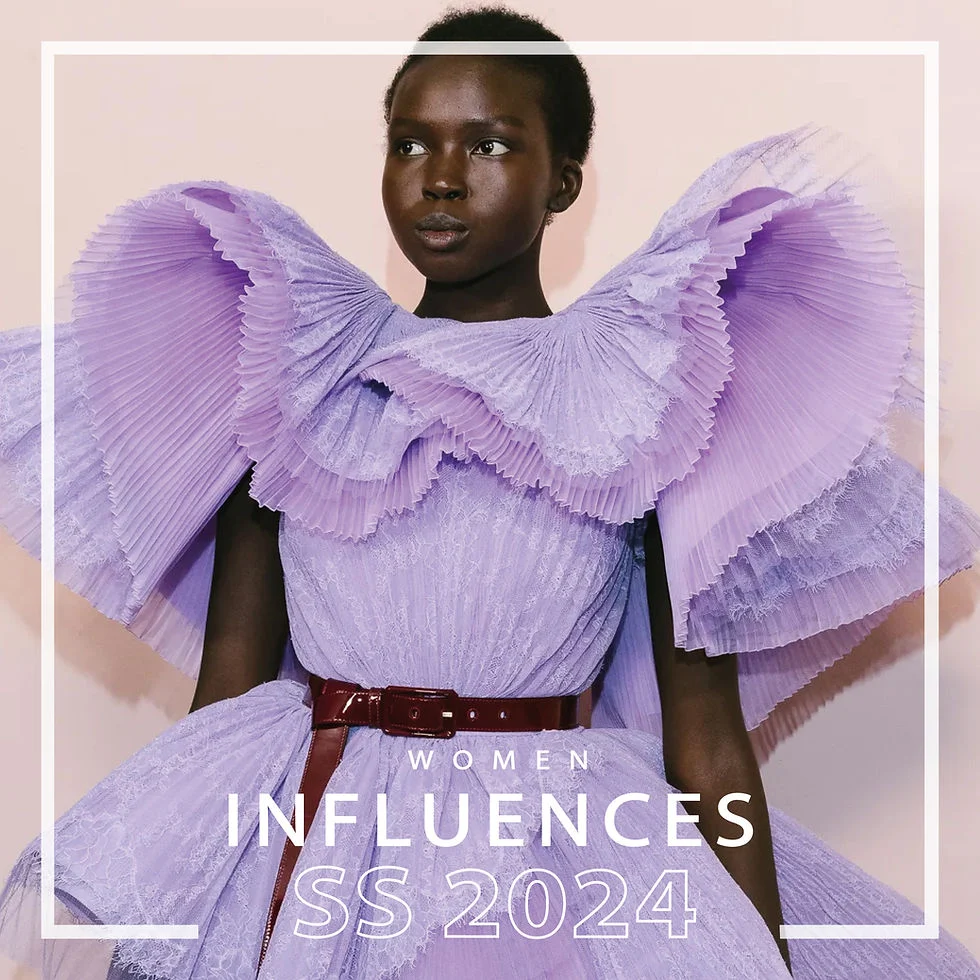The fashion industry is undergoing a significant transformation, marked by the rise of ethical fashion. As consumers become increasingly aware of the environmental and social impacts of their purchasing decisions, they are driving a shift towards more sustainable practices. This movement is not just a trend; it represents a fundamental change in how we view fashion, emphasizing transparency, fair labor practices, and eco-friendly materials. In this article, we will delve into the factors contributing to the rise of ethical fashion and how consumer behavior is shaping the future of the industry.
In the following sections, we will explore the key drivers behind this movement, including the growing demand for sustainable products and the influence of social media in raising awareness. We will also discuss the role of brands in responding to consumer expectations and the innovative practices they are adopting to align with ethical standards. Furthermore, we will highlight inspiring case studies of companies that have successfully integrated ethical practices into their business models, showcasing the positive impact of consumer choices on the environment and society.
Join us as we uncover the compelling narrative of ethical fashion and its implications for the future. Whether you are a conscious consumer or simply curious about the changes in the fashion landscape, this article will provide valuable insights and encourage you to consider the impact of your fashion choices. Read on to discover how you can be part of this sustainable change and contribute to a more ethical fashion industry.
In recent years, the fashion industry has witnessed a significant shift towards ethical practices, driven largely by consumer demand for sustainability. This article explores various aspects of this movement, highlighting how consumers are influencing the landscape of fashion.
Understanding Ethical Fashion
Ethical fashion refers to clothing and accessories that are produced in a way that is environmentally sustainable and socially responsible. This includes fair labor practices, sustainable materials, and minimal environmental impact. As consumers become more aware of the implications of their purchases, the demand for ethical fashion has surged.
Brands are now being held accountable for their production processes, leading to a greater emphasis on transparency. Consumers are increasingly seeking information about where and how their clothes are made, which has prompted many companies to adopt more ethical practices.
The Role of Consumer Awareness
Consumer awareness plays a crucial role in the rise of ethical fashion. With the advent of social media and online platforms, information about unethical practices in the fashion industry has become more accessible. Documentaries, articles, and social media campaigns have educated consumers about the environmental and social impacts of fast fashion.
This heightened awareness has led to a shift in purchasing behavior, with more consumers opting for brands that align with their values. As a result, companies are increasingly prioritizing sustainability in their business models to meet the demands of conscious consumers.
The Impact of Social Media
Social media has been a powerful tool in promoting ethical fashion. Influencers and activists use platforms like Instagram and TikTok to raise awareness about sustainable brands and practices. This visibility has helped to create a community of like-minded individuals who advocate for change in the fashion industry.
Moreover, social media campaigns can quickly mobilize support for ethical brands, leading to increased sales and brand loyalty. As consumers share their experiences and recommendations, the reach of ethical fashion continues to grow.
The Rise of Sustainable Materials
One of the key components of ethical fashion is the use of sustainable materials. Brands are increasingly turning to organic cotton, recycled fabrics, and innovative materials like Tencel and hemp. These materials not only reduce environmental impact but also appeal to consumers who prioritize sustainability.
By choosing sustainable materials, brands can differentiate themselves in a crowded market. Consumers are more likely to support companies that demonstrate a commitment to reducing their ecological footprint, leading to a positive feedback loop for sustainable practices.
The Influence of Certifications and Labels
Certifications and labels play a significant role in guiding consumers towards ethical fashion choices. Certifications such as Fair Trade, GOTS (Global Organic Textile Standard), and B Corp provide assurance that brands adhere to specific ethical standards. These labels help consumers make informed decisions and foster trust in the brands they support.
As more consumers seek out certified products, brands are motivated to pursue these certifications, further driving the growth of ethical fashion. This trend highlights the importance of transparency and accountability in the industry.
The Shift Towards Circular Fashion
Circular fashion is an emerging concept that emphasizes the importance of reusing and recycling materials to create a closed-loop system. This approach reduces waste and encourages consumers to think critically about their consumption habits. Brands are adopting circular practices by offering repair services, take-back programs, and upcycling initiatives.
As consumers become more aware of the environmental impact of their clothing, the demand for circular fashion solutions is increasing. This shift not only benefits the planet but also fosters a sense of community among consumers who prioritize sustainability.
The Role of Transparency in Brand Loyalty
Transparency is becoming a key factor in consumer loyalty. Brands that openly share their production processes, sourcing, and labor practices are more likely to earn the trust of consumers. This transparency allows consumers to make informed choices and feel confident in their purchases.
As a result, many brands are investing in technology and systems that enhance transparency, such as blockchain. This commitment to openness not only strengthens brand loyalty but also encourages other companies to adopt similar practices.
The Future of Ethical Fashion
The future of ethical fashion looks promising as consumers continue to drive demand for sustainable practices. As awareness grows and technology advances, we can expect to see more innovative solutions that address the challenges of the fashion industry.
Ultimately, the rise of ethical fashion represents a significant cultural shift towards sustainability and responsibility. As consumers prioritize ethical choices, the fashion industry will be compelled to evolve, leading to a more sustainable future for all.
| Aspect | Description |
|---|---|
| Definition | Ethical fashion refers to clothing that is produced in a way that is environmentally friendly and socially responsible. |
| Consumer Awareness | Consumers are increasingly aware of the environmental and social impacts of their purchases, leading to a demand for transparency in the fashion industry. |
| Sustainable Materials | Brands are adopting sustainable materials such as organic cotton, recycled fabrics, and biodegradable materials to reduce their ecological footprint. |
| Fair Labor Practices | Ethical fashion emphasizes fair wages and safe working conditions for garment workers, promoting social equity. |
| Consumer Influence | Social media and online platforms allow consumers to voice their preferences, pressuring brands to adopt ethical practices. |
| Second-Hand Market | The rise of thrift shopping and second-hand markets reflects a shift towards sustainable consumption, reducing waste and promoting reuse. |
| Brand Initiatives | Many brands are launching initiatives to promote sustainability, such as take-back programs and eco-friendly packaging. |
| Future Trends | The future of fashion is likely to see continued growth in ethical practices, driven by consumer demand and regulatory changes. |



